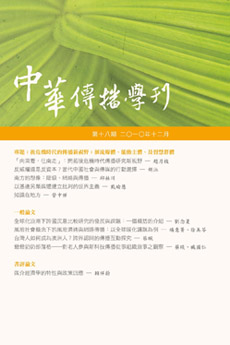 閱覽人數: 38
閱覽人數: 38
December
2010
No. 18
後危機時代的傳播新視野:滙流媒體、能動主體、及智慧群體
New Perspectives in Communication Research in the Post-Crisis Era頁數:71 - 87
作者(中)
戴瑜慧
作者(英)
Yu-Hui Tai
關鍵詞(中)
中國國族主義、另類媒體、西方中心主義、社會運動、批判的世 界主義
關鍵詞(英)
Chinese nationalism, alternative media, West-centrism, social movement, critical cosmopolitanism
中文摘要
本文圍繞在趙文的核心提問:全球資本主義危機下新範式革命的如何建立及批判傳播學者的角色。首先指出兩種認識論危機─西方中心主義與狹隘的中國國族主義作為一組對立統一的矛盾,必須同時解構。趙文主張以「批判的世界主義」作為超克的槓桿,本文進而檢視國際批判力量連結的存在條件,指出橫亙在大陸內部,大陸/台灣,西方/非西方之間的三座對話峽谷。主張自民眾視角出發,發展基進另類媒體,跨越對話峽谷,建立國際批判連帶。
英文摘要
This article focuses on Zhao’s main concerns -- how to build an alternative paradigm to replace global capitalism and the role of critical communication scholars in the process. Zhao applied the concept of “critical cosmopolitanism” to criticize two dominant epistemologies -- the Westcentrism and Chinese Nationalism -- which work as a pair of contradictions and need to be deconstructed simultaneously. This article examines the historical conditions of the possibility of building the international critical
linkage to realize critical cosmopolitanism. I argue that there are three “dialogue chasms” which impede the building of critical dialogue space inside China, between China and Taiwan, and between Non-West and West. The way to cross these “dialogue chasms” is to build radical alternative
media based on ordinary people’s experiences, especially disenfranchised groups. Through radical alternative media, people in different areas exchange their daily struggle experiences, have sympathy for the suffering of others, and build deeper insight into the structure.
linkage to realize critical cosmopolitanism. I argue that there are three “dialogue chasms” which impede the building of critical dialogue space inside China, between China and Taiwan, and between Non-West and West. The way to cross these “dialogue chasms” is to build radical alternative
media based on ordinary people’s experiences, especially disenfranchised groups. Through radical alternative media, people in different areas exchange their daily struggle experiences, have sympathy for the suffering of others, and build deeper insight into the structure.